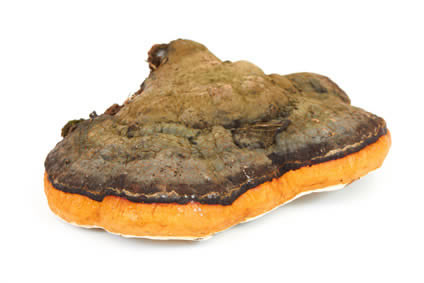Chaga (Inonotus Obliquus) is a parasitic mushroom that grows on the trunks of birch trees. Grows in Siberia, Korea, Canada, the Northern US. Yet, because of the extremely cold temperatures encountered in the Siberian forest, Siberian Chaga mushroom is the most potent variety worldwide. Chaga mushroom has 29 beta fractions. It contains saponins, sterols, triterpenes, SOD, protein, amino acid complexes and other trace minerals.
Chaga Benefits
This medicinal mushroom is well known for its full spectrum of immune stimulating phytochemicals. Chaga mushroom is an excellent source for plant sterols, and beta glucan. But, its most potent ingredient is a special substance known as superoxide dismutase. Superoxide Dismutase (SOD) is the key antioxidant responsible for counteracting superoxide, which is one of the most damaging free-radicals in the human body. The amount of superoxide dismutase in our body is important for our health yet it decreases as we age. Chaga’s superoxide dismutase quantity is 35,000, compared to other medical mushrooms which only have 1,400 to 1,500.
Chaga mushroom is rich in beta glucans which have immunomodulating activities. Beta glucans bind to Complement Receptor 3 that allows the immune cells to recognize cancer cells as “non-self”. Chaga mushroom polysaccharides effectively promote macrophage activation through the MAPK and NF-κB signaling pathways, suggesting that chaga polysaccharides help regulate the immune response of the body.
Chaga mushroom contains high levels of betulinic acid in a form that can be ingested orally. The anticancer effects of betulinic acid, is now being studied for use as achemotherapeutic agent. Betulinic acid, is cytotoxic and triggers apoptosis through a direct effect on the mitochondria of cancer cells.
 A water-soluble extract of chaga has been shown to have an antioxidant feature in cell culture trials. Experts believe that oxidative nuclear DNA damage over the human life span strongly contributes to age related degeneration and the development of cancers. Scientists at Kyunghee University South Korea examined chaga mushroom effectiveness in protecting cellular DNA. Cells were treated with chaga extract then exposed to oxidative stress. The extract-treated cells had 40 % less DNA mutation compared with the untreated cells.
A water-soluble extract of chaga has been shown to have an antioxidant feature in cell culture trials. Experts believe that oxidative nuclear DNA damage over the human life span strongly contributes to age related degeneration and the development of cancers. Scientists at Kyunghee University South Korea examined chaga mushroom effectiveness in protecting cellular DNA. Cells were treated with chaga extract then exposed to oxidative stress. The extract-treated cells had 40 % less DNA mutation compared with the untreated cells.
Studies have proven its effectiveness in treating many types of cancers, including breast cancer, lung cancer, liver cancer, melanoma and stomach cancer. In 1955, following some years of research and testing, chaga was approved for the treatment of cancers by “Medical Academy of Science in Moscow“. In a 48 patient clinical trial in Poland in 1957, 10 patients treated with chaga mushroom showed a reduction of tumor size, a decrease in pain, a decrease in the intensity and the frequency of hemorrhaging, and a recovery that was accompanied with better sleep, appetite and feelings of improvement. Scientists, at the Department of Biotechnology, Daegu University, demonstrated anti-colon cancer effects chaga in a experiment reported in the December 2009 issue of the journal Phytotherapy Research.
Chaga can be used as an adjunct for the treatment of those who are suffering from HIV/AIDS. There are antiviral agents in chaga mushroom that can inhibit the growth of viruses connected with HIV/AIDS. There are experiments conducted in Japan which have confirmed Chaga’s antiviral activity by inhibiting the protease enzyme of HIV-1.
Ethanol extracts of Chaga have shown marked, dose-dependent capability to inhibit the production of the chemical mediators of inflammation. This leads to a reduction in the inflammatory response of the body. The anti-inflammatory and pain relieving properties of chaga mushroom are thought to be the inhibition of nitric oxide synthase and cyclooxygenase-2 (COX-2). An extract of chaga reduced the oxidative stress in lymphocytes from patients with inflammatory bowel disease.
Chaga Side Effects
Chaga may magnify the effects of anticoagulant medications such as warfarin and aspirin. If you take, especially anticoagulant and hypoglycemic drugs, talk with your physician before taking chaga. Chaga is contraindicated for patients who are using penicillin or glucose given intravenously.
Leave a Reply